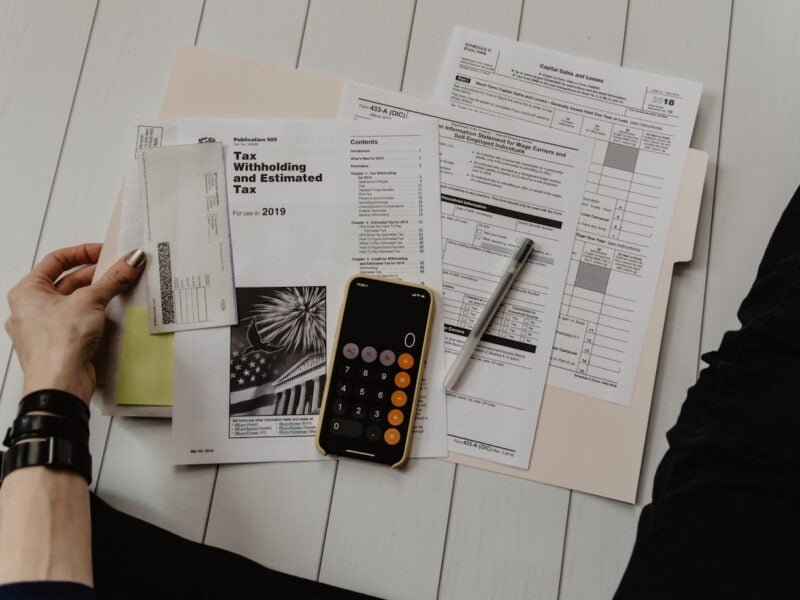More people are choosing to give to charity in the UK. NPT UK found that people gave £11.3 billion to charity in 2020, up from just over £10 billion in 2019. The most popular causes in the UK are related to animal welfare, medical research, schools, colleges and education. But giving to charity has other benefits beyond helping causes that matter to you. They also provide some tax relief, and there are various ways to get tax relief on charitable donations in the UK. In this article, we explore the various ways you can get tax relief on your charitable donations, including payroll giving schemes and Gift Aid.

Payroll Giving
Payroll giving allows you to give money to charity without paying tax on the amount you give. It’s important to note that it must be paid through PAYE—it’s not an option for those who are self-employed. Employers have no obligation to offer payroll giving to employees. As a result, your employer may not allow you to donate to charity through a payroll giving scheme.
If your employer does offer a payroll giving scheme, the donation amount you choose will be donated to your charity of choice through a Payroll Giving agency. Please note that to give to a charity through payroll giving, the charity must be recognised by HMRC and use the donations for charitable purchases.
How does payroll giving give me tax relief?
The amount of tax relief depends on how much money you donate to a charity and the rate of tax you pay. For example, to donate £1, you pay 80p as a basic-rate taxpayer, 60p as a higher-rate taxpayer and 55p if you’re an additional-rate taxpayer. If you live in Scotland, to donate £1, you pay 81p as a starter rate taxpayer, 80p as a basic rate taxpayer, 79p as an intermediate rate taxpayer, 59p as a higher rate taxpayer and 54p as a top-rate taxpayer.
Gift Aid
Another way to get tax relief in the UK is to use Gift Aid. It is the most common way for UK residents to donate money to charity. Gift Aid can only be claimed on UK taxpayer donations because it is a repayment of the UK basic rate of income tax, which is 20 per cent. Using Gift Aid extends your tax rate bands and, as a result, increases the amount of income taxed at a lower rate. For example, if you pay a higher rate of tax, 40 per cent, and you donate £100 to a charity, they claim Gift Aid, which makes your donation £125. As a result, you can claim back £25.
Donating to good causes through Gift Aid allows charities to claim an extra 25p for every £1 you donate. To make a Gift Aid donation, you typically need to fill in a form for the charity to claim. If you do not have a form, contact the charity you wish to donate to. Your Gift Aid donations will qualify as long as they are not four times what you have paid in tax in the current tax year. HMRC notes that you are obligated to let the charities you support know if you stop paying enough tax.
Benefits for the self-employed
Gift Aid offers benefits for those who are self-employed because you can claim tax relief on donations you make in the current year if you want tax relief sooner. However, you cannot do this if you miss the self-assessment deadline or your donations don’t qualify for Gift Aid because they are more than four times what you paid in tax in the last year.
Donating Land, Buildings, Shares and Securities to Charity
Another way to get tax relief on charitable donations is to give land, buildings, shares and securities to charity. HMRC states that you can claim tax relief on this form of charitable giving if you give or sell at less than market value any investments that qualify (shares or securities listed on a recognised stock exchange or dealt in any designated UK market, units in an Authorised Unit Trust, shares in a UK Open-Ended Investment Company, holdings in some foreign collective investment schemes and qualifying interest in land) to a UK charity.
To donate the above assets to charity, you must first contact the charity to ensure they accept the donation in question. Then, you will need to sign a transfer form to put the assets into the name of the charity. Donating land, buildings, shares and securities to charity is a complex process, so those looking to do so should visit the HMRC website for more information.
Final Thoughts
To make a real difference in the world and get relief on your next tax bill, consider donating to charity through payroll giving, Gift Aid or donating land, buildings, shares and securities to a charitable organisation. It helps you reduce your tax bill, and it helps the charity make more of an impact!


